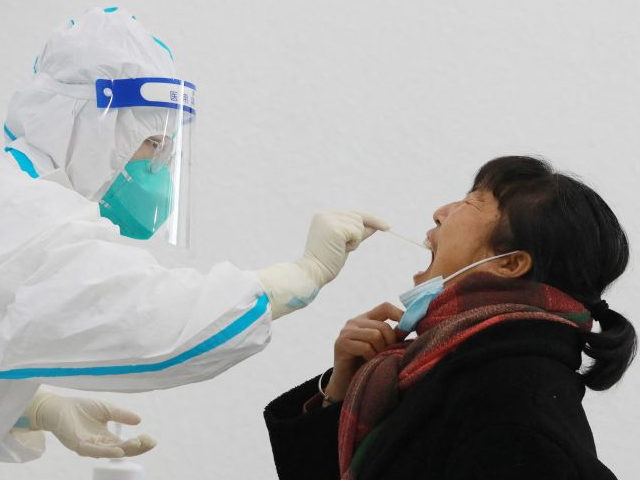Local Communist Party officials in eastern China’s Hangzhou city confirmed 24 new daily cases of the Chinese coronavirus within the community on Monday, China’s official state-run press agency Xinhua reported.
Hangzhou is the capital of Zhejiang province and has a population of about 7.8 million. Zhejiang borders Shanghai, which counts roughly 25 million inhabitants and is China’s most populous city. Health authorities in Zhejiang, home to about 57 million residents, described the province as having “12 medium-risk areas for COVID-19 [Chinese coronavirus] and one high-risk area” on January 31.
Zhejiang has experienced a surge in its coronavirus caseload since at least January 20, with all of the province’s 83 infections (as of January 31) centered in Hangzhou. It remains unclear if Zhejiang’s latest coronavirus epidemic has spread to neighboring Shanghai. However, China’s state-run Global Times on January 28 revealed that Hangzhou’s outbreak had already “spilled over to Anshun in Southwest China’s Guizhou, Shangrao in East China’s Jiangxi and Luotian, and Huanggang in Central China’s Hubei.”
Zhejiang’s coronavirus outbreak in mid-January coincided with an annual travel season in China in which migrant workers return to their hometowns and villages from major cities to reunite with their families in anticipation of the Lunar New Year. The spring festival, which fell on February 1 this year, entails heavy travel before and after the occasion.
“[L]ow temperatures in winter [and] mobility during the Spring Festival … combine together to pose even tougher challenges for domestic epidemic control,” Wang Guangfa, a respiratory expert at Peking University First Hospital in Beijing, told the Global Times on January 28.
The Chinese Communist Party’s State Council, or chief administrative authority, acknowledged China’s heightened epidemic risk during the spring festival travel rush on January 22.
“People who have travel plans, even if not required, are encouraged to take tests before and after their travel to monitor their health status,” the council’s “information office on COVID-19 control” advised the Chinese public at a press conference.
“People are also encouraged to reduce the scale of banquets and take protective methods during the holidays,” the office added.

COMMENTS
Please let us know if you're having issues with commenting.